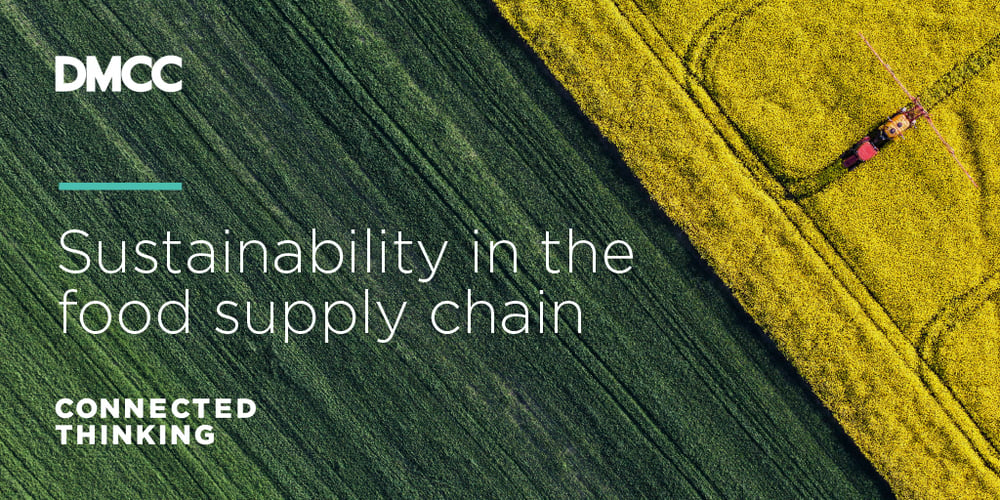Sustainability is a key concern for the food supply chain, as global population expands and demand pressures grow
Dubai and the UAE are perfectly positioned between emerging and established economies to address these concerns
DMCC (Dubai Multi Commodities Centre), the authority on trade, enterprise and commodities in Dubai, today issued a report on food security as part of its Connected Thinking thought leadership programme, titled “Sustainable Food Supply: the Key to Feeding the World”.
Food security has emerged as a growing concern in many parts of the world, with a rapidly growing population, development challenges and climate change. DMCC’s report seeks to underline the need for stakeholders across the supply chain to adapt and address these concerns, as well as identify benefits and opportunities.
Sanjeev Dutta, Executive Director of Commodities, DMCC commented: “As the world’s population continues to increase, and emerging markets continue to improve economically, hundreds of millions of new consumers every year need ever-greater supplies of food.”
The report summarises the five key factors that companies operating in the food trade supply chain need to consider when looking expanding internationally, whilst ensuring optimum trading capabilities. The top consideration is location whereby the report highlights the importance of finding a city with world-class seaports, airports and road infrastructure. Additional considerations include expertise, partners, resources and regulations.
Recognising these key factors, the report goes on to highlight the importance of Dubai and DMCC given its strategic location and the major role they play in shaping the future of the global food supply-chain.
Sudhakar Tomar, Managing Director at Hakan Agro, a specialist food business based in the DMCC Free Zone goes on to explain these points in the report: “Propositions such as a stable government, freely convertible currency, a strategic location with convenient time zone, great infrastructure, no taxation on profits or personal or company income, no foreign exchange controls, no restrictions on capital movement and freehold ownership of property, all put Dubai and DMCC at a distinct advantage in the evolving global food supply chain.”
“Dubai and the UAE are perfectly positioned at the centre of the world, acting as a bridge between North and South, East and West. Around 90 per cent of the country’s food is imported, so the foundations of a global food supply chain hub have already been in place for decades. The Emirate’s recent advances and innovation and technology further cements its strong position in shaping the future of the global food supply-chain”, Sanjeev Dutta, Executive Director of Commodities, DMCC, concluded.
Furthermore, the report highlights other key challenges within the industry such as the ever-changing consumer demands, climate change, and reduction in water supplies. It explains how addressing these factors through technology, innovation and sustainability initiatives may help tackle the expected population growth in the next ten years and its implications on the supply and demand of food. The GCC is expected to see food imports grow to over $50 billion by 2020 from $25 billion in 2004.
The DMCC is at the epicentre of global trade and has been increasing and improving its platform and services to the food industry over the last few years. It most recently launched the DMCC Food Trade Group, which currently has over 50 member companies, which focuses on building trust and confidence amongst traders through uniting food companies from around the world.
To access a full copy of the report, please click here.
